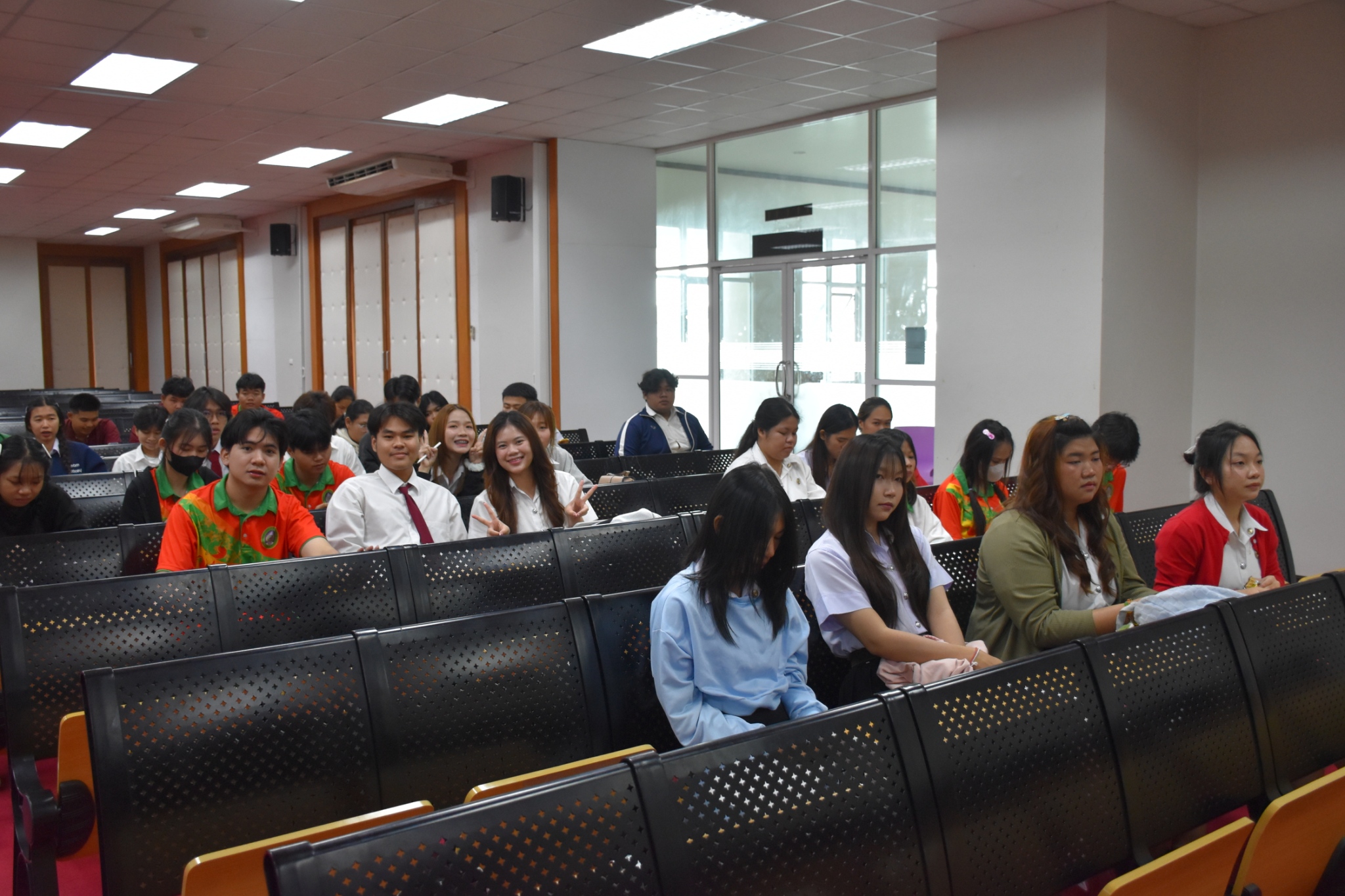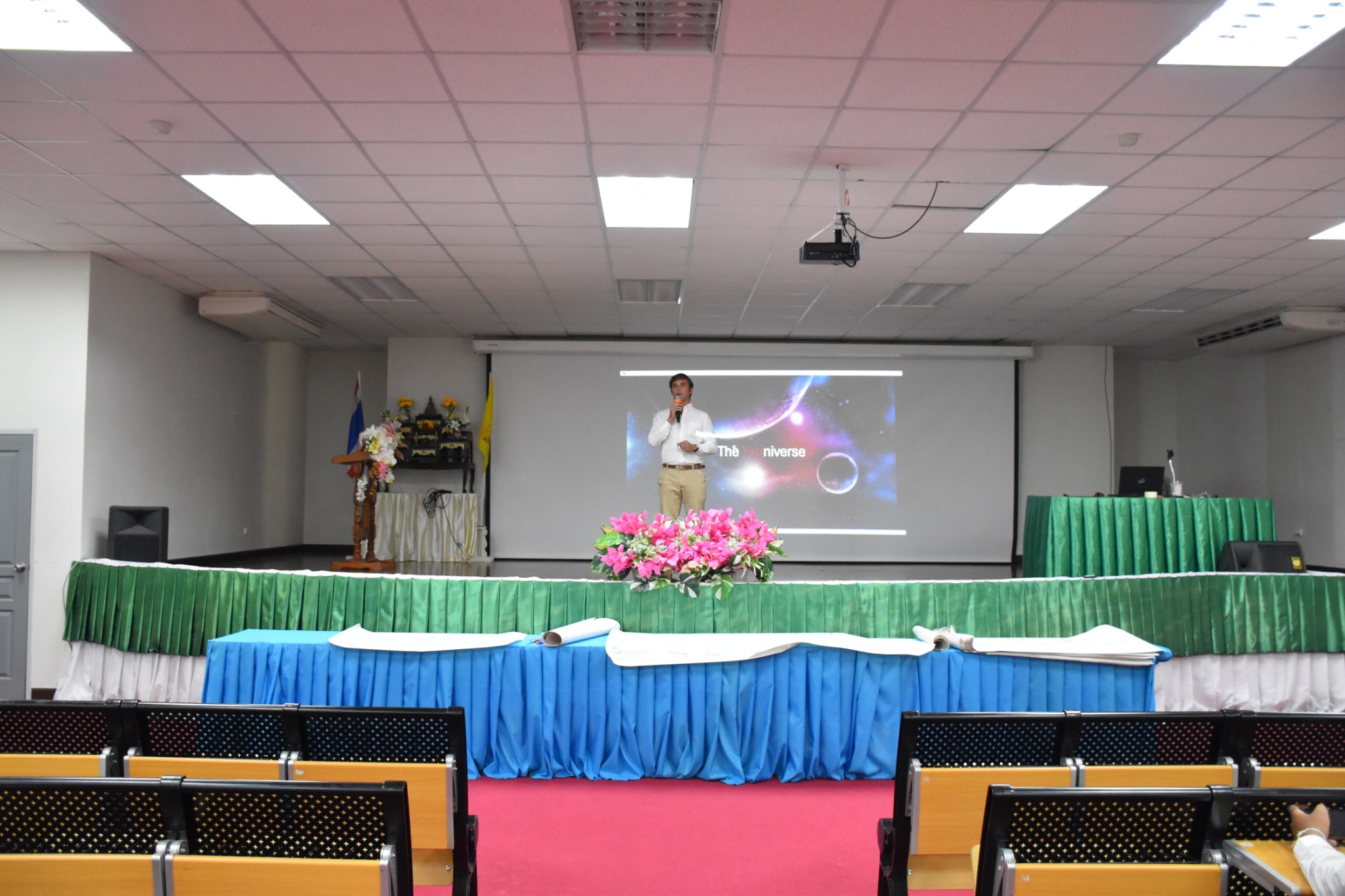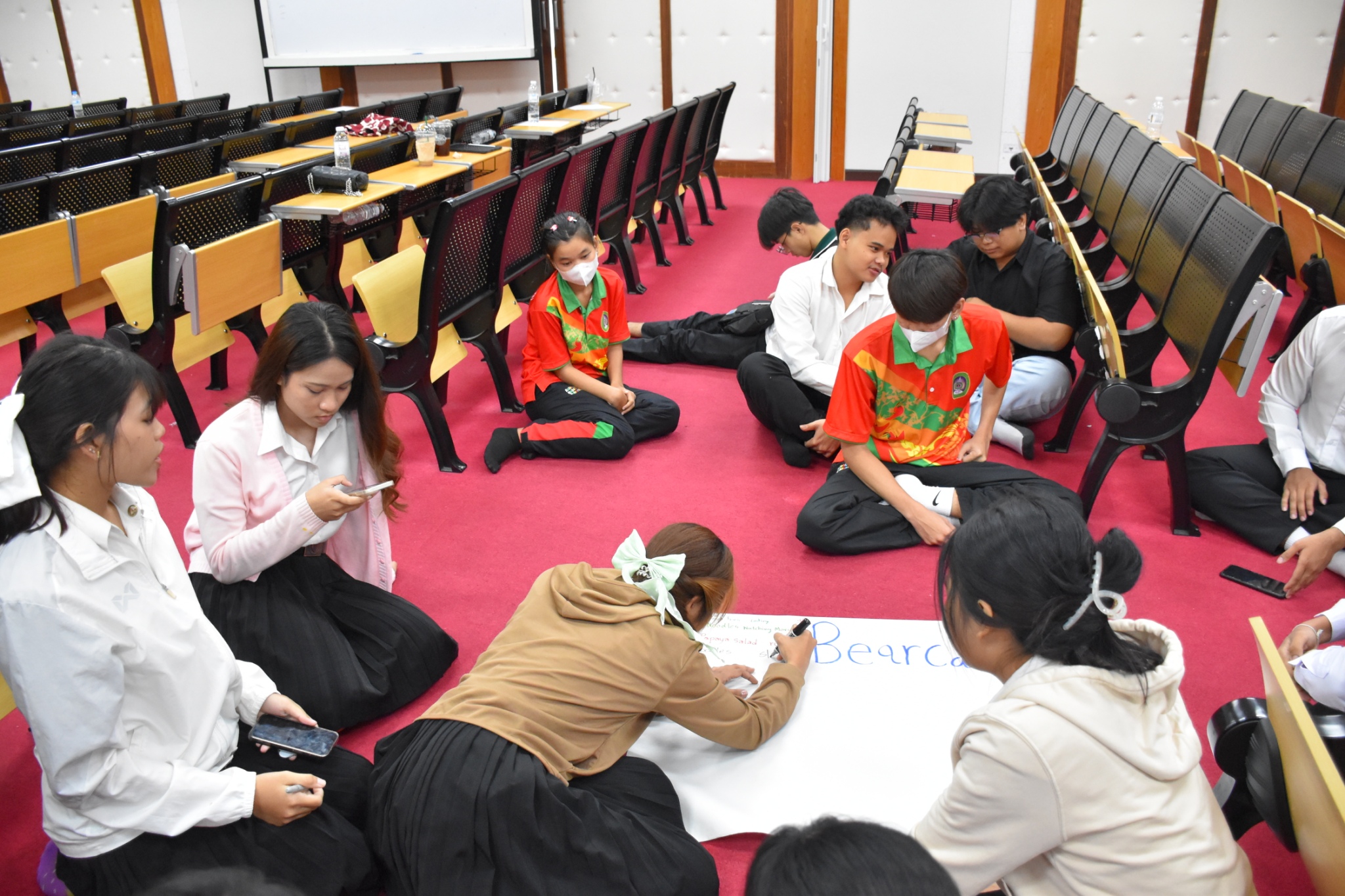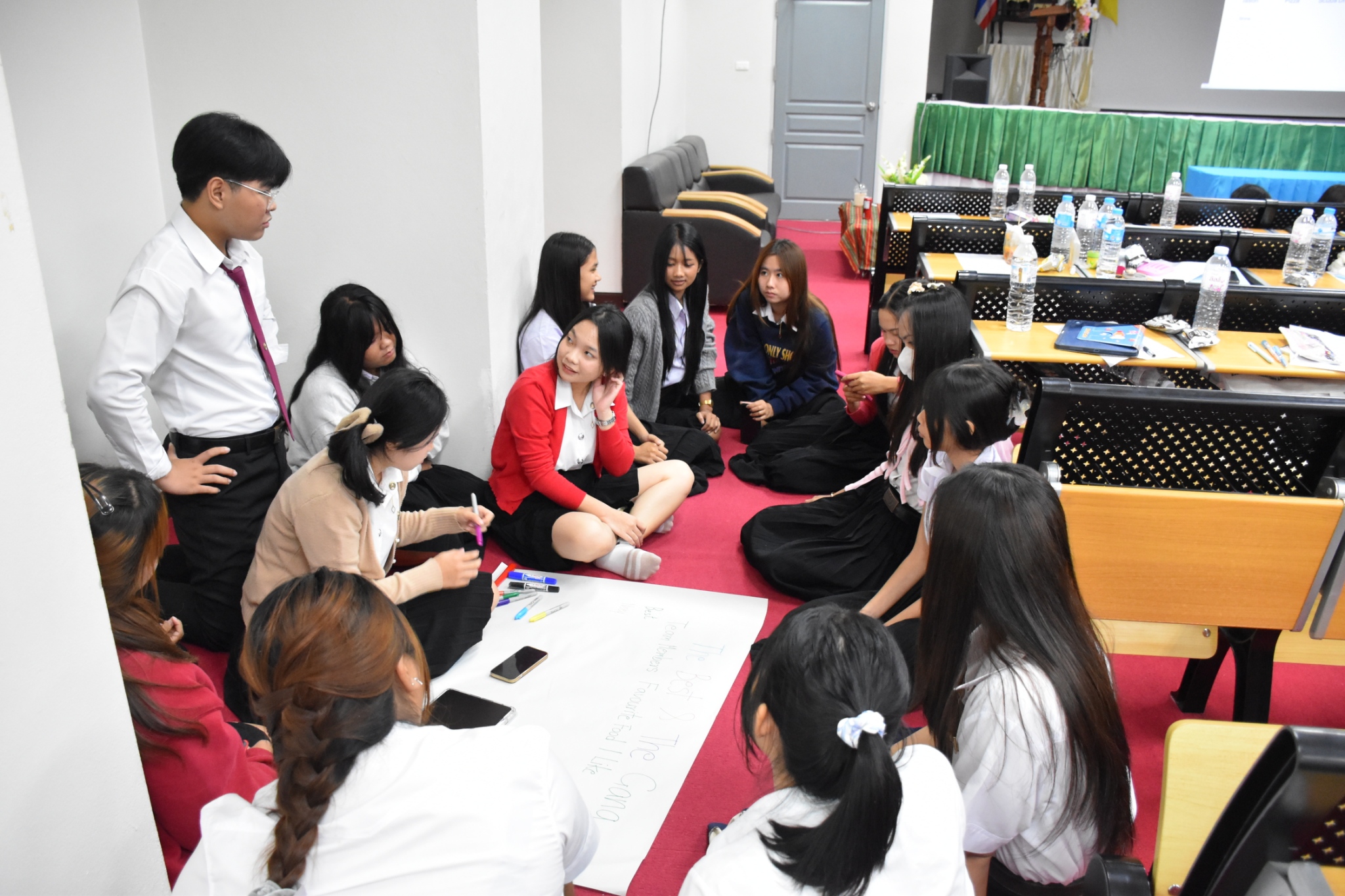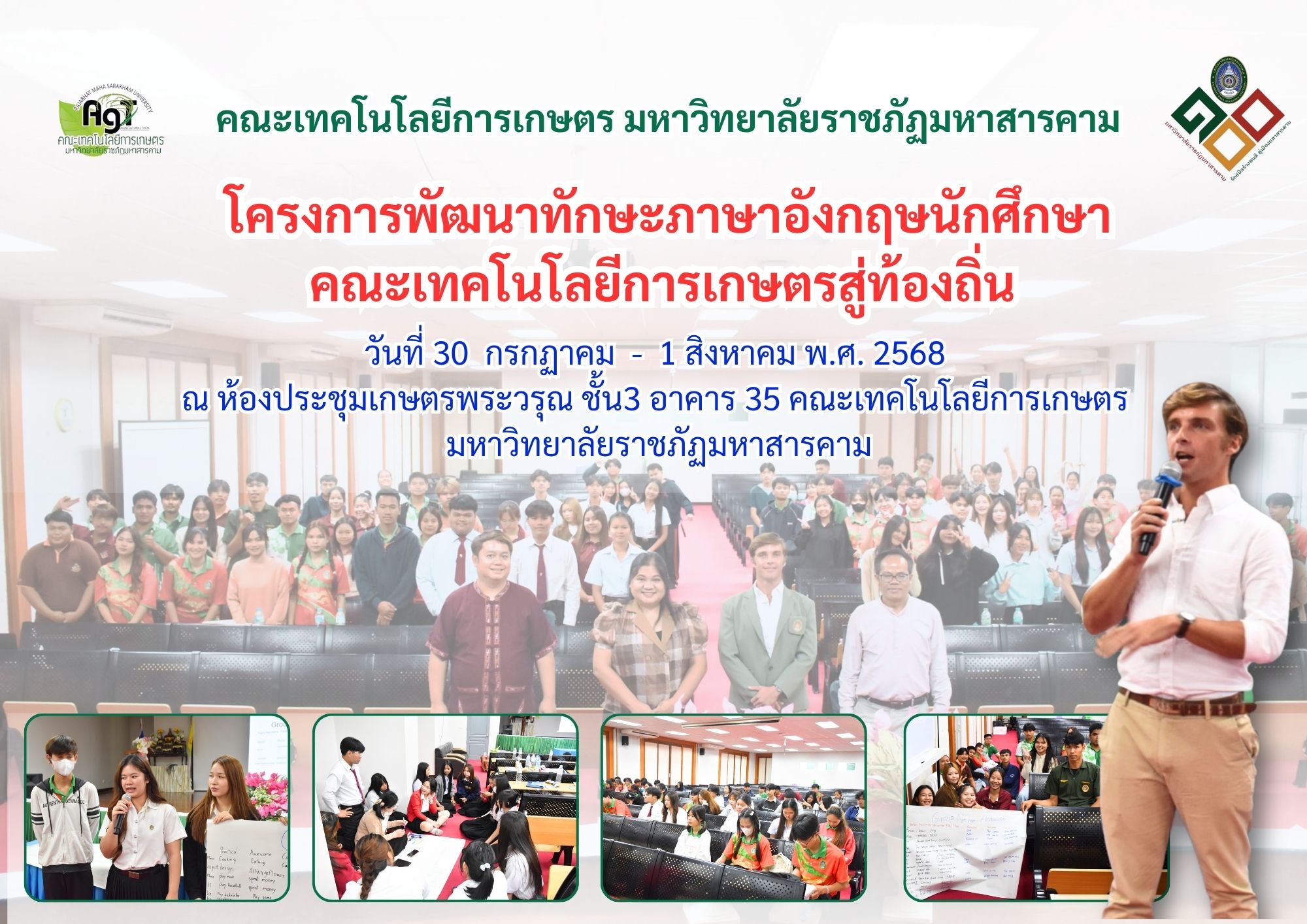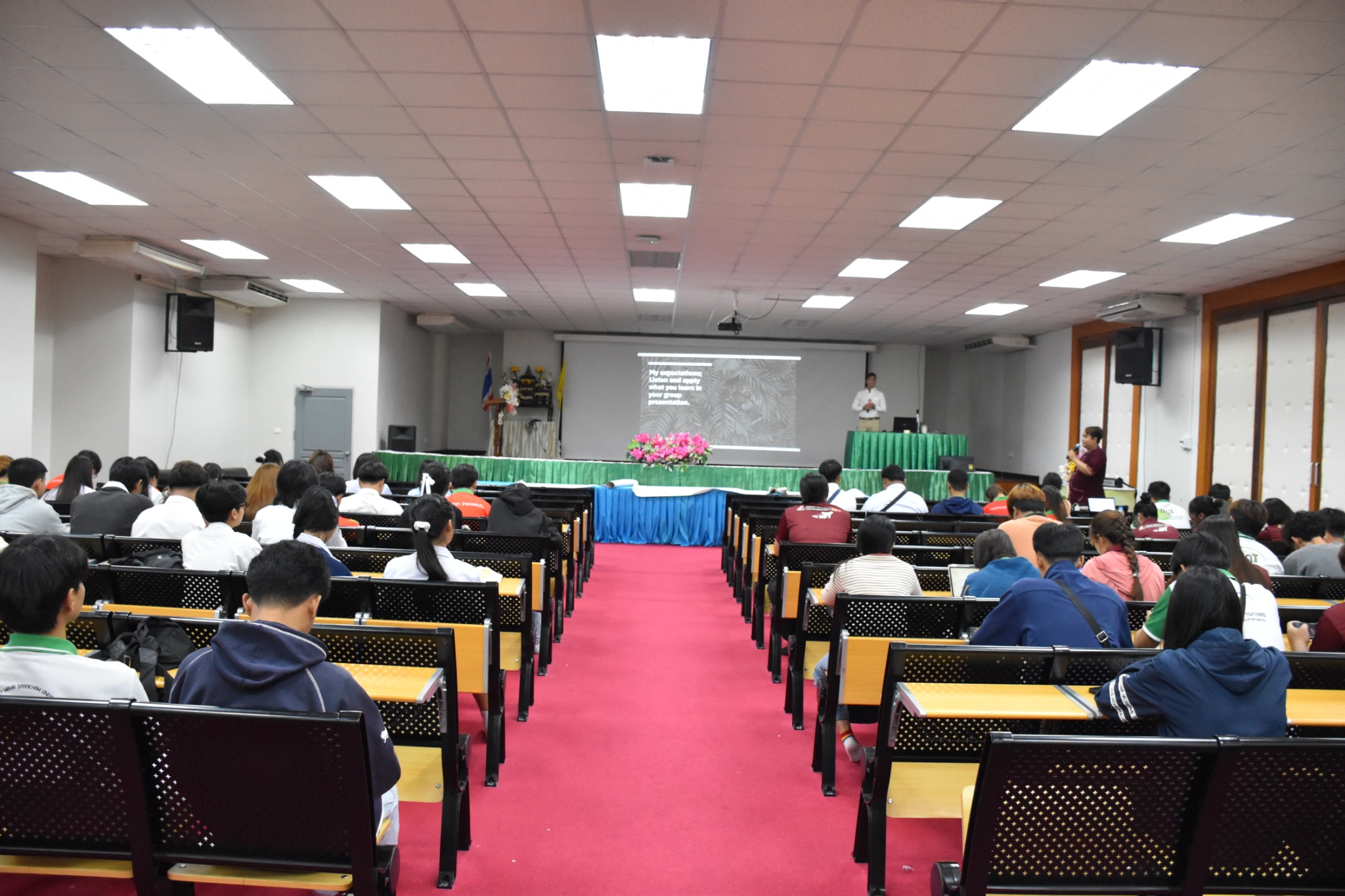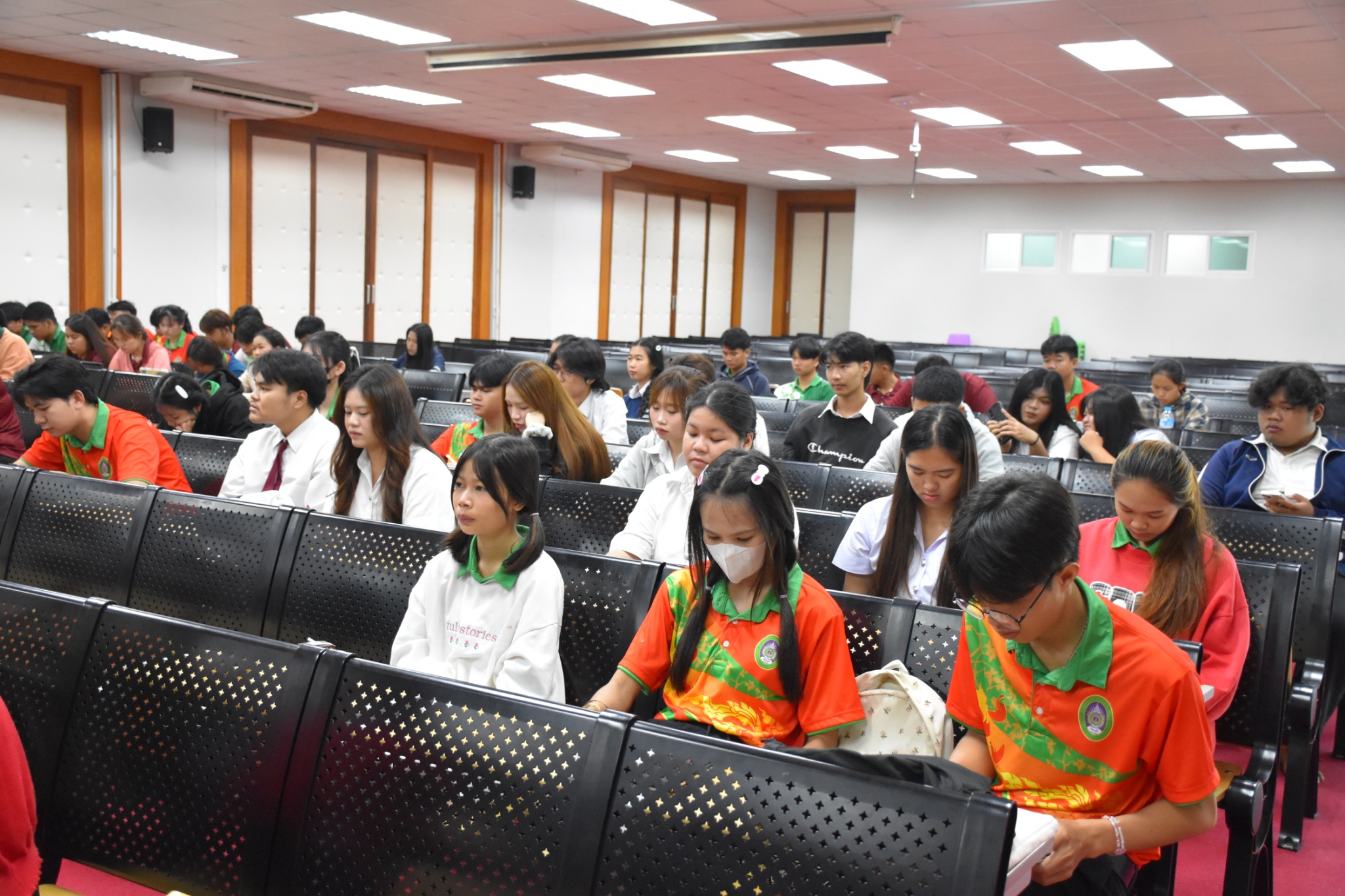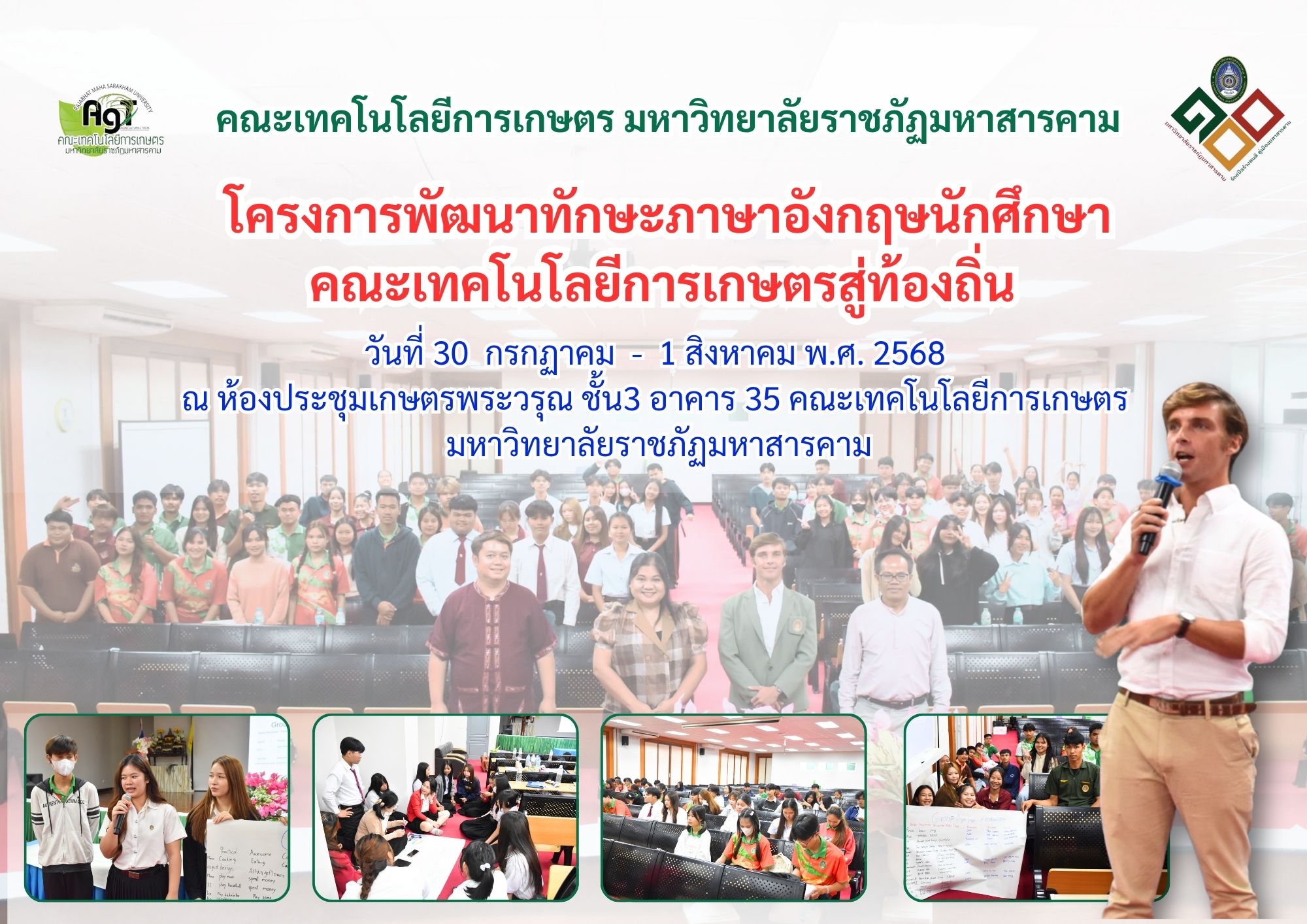
English Skills Development for Students inthe Faculty of Agricultural Technology
ผู้รับผิดชอบ ให้ข้อมูล : Asst.Prof. Dr. Wantanee Ploviset
SDG ที่เกี่ยวข้อง
เป้าหมายย่อยความสอดคล้องกับยุทธศาสตร์มหาวิทยาลัย : ยกระดับคุณภาพการศึกษาสู่ความเป็นเลิศ
แหล่งงบประมาณ : งบประมาณแผ่นดิน
กลุ่มเป้าหมาย : นักศึกษา
Project Implementation Area : Faculty of Agriculyural of Technology ตำบล Talat อำเภอ Mueang Maha Sarakham จังหวัด Maha Sarakham 44000
Project Duration: July 25, 2025 – September 25, 2025
Objectives :
1. To develop students' academic or professional English language skills according to their needs and in alignment with the context of the Faculty of Agricultural Technology.
2. To provide various modern approaches to English language learning that are accessible to students.
3. To show the results of knowledge derived from the students' English language development.
Activities :
Phase1
Needs analysis: analyzing the necessity of English usage among students in the Faculty of Agricultural Technology, identifying weaknesses and skills that need development.
Curriculum Design: preparing content that covers specialized agricultural vocabulary, and setting up activities that emphasize practical application, such as presentations and conversations.
Resource Provision: selecting expert speakers and preparing teaching materials and venues for the training.
Phase 2
Training Workshop: lecturing on necessary vocabulary and sentence structures; activities to practice using English in simulated situations, such as community introductions or conversations about agricultural technology.
Evaluation: assessing comprehension after the activity to improve instruction; observing student participation and interaction.
Phase 3
Project Outcomes: students increase their English vocabulary, students are more confident in communicating in English, and students can use the knowledge to develop the community.
Follow-up: evaluating long-term achievement, and improving the project based on feedback.
Number of project participants: 120 people
Project Budget: 50,000 Baht
Results :
Students are more confident in communicating in English and gain their English skills.
Results society :
The project clearly generates a positive impact on the community. This is a crucial key to increase economy opportunities such as trade, tourism services, or access to knowledge in English and modern technology in agriculture. Furthermore, it helps to strengthen good relationships between the university and the community, leading to the transfer of knowledge and the benefit of human resources for sustainable local development and awareness of partcipation in self and social development among both students and community members.
Participation :
The students are a key factor to develop community with English communication.
Project continuity :
The students are a key factor to develop community with English communication.
Problems obstacles :
Duration and Content:
• Insufficient Duration: most participants felt that the duration of the activity was quite short. Therefore, it’s impossible to fully practice their skills, especially speaking and conversation skills.
• Variety of Disciplines: the content used in the training was broad and general; some parts did not meet the specific needs of students in each field of study. For example, students in animal science program needed vocabulary and conversations directly related to animals more than general agricultural content.
• Activity Participation:
• Public Relations: Despite efforts to publicize the event, some students still did not receive clear information or missed the deadline, causing them to miss the opportunity to join the project.
• Engagement: Some students still lacked confidence and were shy about using English, which resulted in their participation in group activities and practical exercises being less.
• Resources and Facilities:
• Learning Materials: some participants suggested that there should be additional English-language teaching materials, such as specialized vocabulary handbooks or online resources in order to allow students to review and practice on their own after the project ended up.
Improvement :
Here are the recommendations to be used as a guideline for improving the further project.
1. Content and Duration:
A detailed survey of the needs of students in each field of study should be conducted before organizing the project. Activities should be designed to align with the specific vocabulary and context of each discipline. For example, organize smaller groups based on the field of study so students can practice English directly related to their work.
The project duration should be extended, or activities should be organized continuously for giving students the opportunity to practice their skills regularly and see clear development results.
2. Communication and Participation:
Use various and easily accessible channels, such as the faculty's social media and student LINE groups, to ensure comprehensive and widespread dissemination of information.
Organize fun and informal activities that build student confidence, such as using games or role-playing activities.
3. Learning Support:
Specialized agricultural vocabulary handbooks or online media, such as short videos or podcasts, should be prepared to allow students to review and learn independently after the project ends.
Create a network of English-proficient students to act as mentors for students who want to improve their skills, promoting peer-to-peer learning and building a strong learning community.
Suggestions :
The students are a key factor to develop community with English communication.

